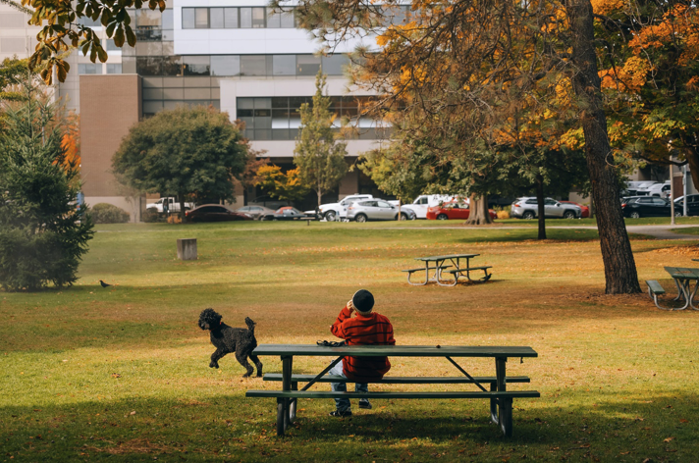
Choosing to break free from drug abuse is one of the most courageous decisions a person can make. It’s a commitment to take control, confront past struggles, and rebuild a healthier, more fulfilling life. Yet, the journey of recovery is far from easy; it’s often marked by moments of self-doubt, emotional highs and lows, and the temptation to give up. Recovery is a process that requires patience, resilience, and support.
While each person’s experience is unique, here we will explore some practical tips that can help make the journey a little smoother.
One of the most crucial components of a successful recovery is having a dependable support network. Friends, family, or fellow group members who genuinely support your journey provide the encouragement and accountability you’ll need on challenging days. It’s not always easy to reach out for support, but connecting with others can make a real difference. Support networks offer a sense of belonging, reducing feelings of isolation or loneliness that can often come with recovery. Consider joining a support group where you can speak openly with others who understand your experience or look for a sponsor if you’re in a 12-step program.
For many, pets provide unmatched companionship and emotional stability, making them incredibly helpful in the recovery journey. Pets can help reduce stress, ease anxiety, and fight off depression, bringing comfort and routine into daily life. Studies have shown that caring for a pet can positively impact mental health[SA1] , which is why some rehabilitation centers even allow or encourage pet-friendly environments. A pet friendly drug rehab is worth considering if you’re attached to a pet or find solace in animals. Having a pet to look after creates a sense of responsibility that can motivate you to stay focused on your goals. This companionship also helps fill lonely times with purpose, reminding you that you’re not alone.
Focusing on physical health can be a game-changer in recovery. When the body feels better, the mind follows suit. Regular exercise is known to release endorphins, which naturally put us in a happy mood and reduce feelings of stress. Whether it’s going for a jog, practicing yoga, or joining a fitness class, staying active has both immediate and long-term benefits for emotional health. Nutrition is equally important; a balanced diet can help stabilize energy levels and improve overall well-being. Lastly, sleep is vital. Developing a good sleep routine can have a profound impact on mental clarity and emotional stability, helping to fend off negative thoughts.
Mindfulness and meditation are powerful tools for managing stress, anxiety, and impulsive thoughts, which can all interfere with recovery. By focusing on the present moment and becoming more aware of your feelings, mindfulness allows you to observe cravings or negative emotions without reacting to them. Practicing mindfulness can be as simple as taking a few minutes each day to focus on your breathing or engaging in a guided meditation session. These techniques can be grounding, helping you feel more in control of your emotions. With regular practice, mindfulness can make it easier to stay calm and centered during difficult times, fostering resilience and reducing the probability of relapse.
Creative activities can be incredibly therapeutic during recovery, offering a healthy outlet to process emotions and occupy the mind positively. Creative outlets, such as painting, writing, music, or crafting, allow you to express feelings that might be difficult to put into words. Many people find that artistic expression helps them release built-up emotions or stress, offering a valuable way to cope with challenges. Moreover, engaging in creative work can bring a sense of pride and accomplishment. Whether you’re reconnecting with an old passion or exploring a new one, creativity can be a powerful, uplifting tool in your recovery journey.
Cravings and triggers are some of the toughest challenges in recovery, but having effective coping mechanisms can help you overcome them. First, you must identify your triggers—whether they’re people, places, or situations. Once you know what it is that triggers you, create a plan for managing these situations. Techniques like deep breathing, going for a walk, or calling a supportive friend can help divert your focus when cravings arise. Some people find it helpful to carry a list of reminders about why they chose recovery, which can serve as motivation in moments of temptation. Remember, coping mechanisms are skills that improve with practice, giving you the power to stay strong even during tough times.
It’s not easy to let go of something you’ve become addicted to. Therefore, celebrate your progress, no matter how small. Every step forward is a win, whether it’s a day sober, a successful handling of a trigger, or meeting a personal goal. Acknowledging these moments can boost confidence and encourage you to keep going. Practicing self-care goes hand-in-hand with celebrating progress. Regular self-care routines, such as taking time to relax, treat yourself to a favorite activity, or engage in healthy hobbies, help reinforce a positive mindset.
Recovery from drug abuse is a journey that calls for courage, commitment, and self-compassion. While the path may be challenging, these strategies can help you build a solid foundation for lasting change. Remember, recovery is not just about abstaining from substances; it’s about reclaiming a fulfilling, purposeful life. Good luck!